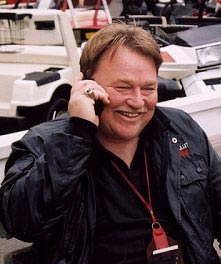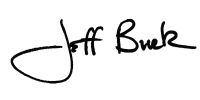
Dangerous cars and dangerous men
As I shuffled around the house a bit dazed, that bit of information along with the news that Sandra Dee had also died was fed to me by the unblinking eye we call a television. That news depressed me greatly, but I immediately thought Thompson would have found the fact that his name and Sandra "Gidget" Dee's were used in the same sentence to be in keeping with his twisted sense of reality. "Bad craziness" indeed. The death of Thompson, who made a career of revealing the unfiltered reality and lifestyles of posers, celebs, fakers and dangerous people, reminded me that no matter how much any of us wants to cling to his own vision of reality, the fact is that it changes and is changed every day. In other words, nothing remains as you first saw it. Not people, not society, and certainly not reality -- which brings me to the subject of drag racing and Hunter S. Thompson. When I first fell in love with drag racing, it was a motorsport that assaulted my youthful and naive senses. It was dangerous, fast, loud and most of the drivers had DA's, jeans and T-shirts. My mom was appalled; I couldn't get enough! Over the years, larger-than-life figures like Eddie Hill, Don Burch, Jack Moss, Bobby Langley, Eddie Schartman, Tom McEwen, Gene Snow and others fueled my imagination. The cars were fast and dangerous, the drivers looked and acted like their cars, and in many (but certainly not all) cases, the car and the driver could both be defined as surly. The guys in my crowd kept a respectable distance in the pits while our heroes were racing. They didn't need a rope or a guard to keep us at bay, but they couldn't run us off. We were like moths drawn to the flame. I think that given the opportunity and proper introductions Hunter S. Thompson would have loved to travel with and write about racers such as Shirley Muldowney, "Jungle" Jim Liberman, Dale Funk, Richard Tharp, Mickey Winter, John "Tarzan" Austin and Scotty Cannon. I doubt that anything he saw while traveling with and writing about Sonny Barger and the Hell's Angels in the '60s was more outrageous than what he would have experienced traveling with the above group of early racers. The point is that for better or worse, the folks running drag racing's major leagues (and all of big time auto racing) apparently are bound and determined to sanitize the sport for our protection. If a driver speaks his own mind after a devastating loss, he could be fined. Should anyone express their feelings about an official decision, they could get a fine. Criticize the sanctioning body, get a fine. Say the word "shit" and get a $25,000 fine! If racers or team owners speak their minds too often, they even might get asked NOT to come to the pressroom after a win, since that kind of boorish, politically incorrect, real-life behavior simply isn't tolerated in today's politically correct, sanitized for your protection auto racing business world. God help us, I swear that some of today's drivers look and act more like insurance salesmen than warriors driving dangerous race cars. How that image sells tickets and attracts fans is beyond me. Hunter S. Thompson would have had a field day exploring what those guys say and do after the interview. Under the current rules of behavior the PC police have imposed on racing drivers I doubt that outspoken icons of drag racing such as Shirley Muldowney, Bob Glidden, Richard Tharp, or non-drag racers like A.J. Foyt, Junior Johnson, Dale Earnhardt or others would ever have developed the fan followings that they did. None of those earlier-era racers could even remotely be considered politically correct. I recently talked to a team owner at NHRA about my concerns that drag racing, and especially the drivers, were losing the edginess that made them attractive to the average fan and he replied, "Drag racing isn't like it used to be. It's changed." I'm not convinced the sport has changed for the better. Maybe it has for the corporate suits that never come to a drag race, but I doubt they actually know what fans really like or want. I think what the fans want is larger-than-life personalities driving dangerous cars and leading lives they can only fantasize about. On the other hand, maybe the suits are right and fans want close racing and Stepford-wives-type drivers. Well, maybe, but you couldn't prove that from drag racing's TV ratings, which are tanking faster than a pug in a fixed fight and keep getting moved to lesser and lesser networks. It was Hemingway, I think, who said that the only true sports were boxing, bullfighting and auto racing. He categorized them as true sports because the participants put their lives on the line every time they participated. Sports and sports figures that fit Hemingway's definition are apparently no longer welcome in today's polite society. Hell's Angels are wearing Brooks Brothers suits, and drivers of fuel cars have "handlers" to keep them politically correct. The reward for building a quicker and faster car is a rule change designed to slow them down. For some of us, drag racing and the world we live in has turned upside down and become something we are no longer familiar with. I think maybe that's what happened to Thompson. He woke up one morning, had a shot of Wild Turkey and a blast of cocaine (which he said many times was the way he started each day), looked around, decided he was no longer relevant, and shuffled off this mortal coil with a bang. The death of my literary hero reminded me that nothing stays the
same and you have to adjust or get out. I'm not getting out, but
that doesn't keep me from occasionally wishing that NHRA drag racing
could somehow be immune to the corporate correctness that comes
with asking for and getting corporate money. The reality that Thompson
evidently could no longer stand it barges into my mind and I realize
there is nothing any of us can do to stop change. Then I think to
myself that at least they're still racing nitro-burning cars, and
things don't look quite so dark. Too bad Hunter S. never got involved
in drag racing; he might still be with us. |
|||||||||||||||||||||||||||||||||||||||||||||


 I
heard the news Monday morning. Hunter S. Thompson -- my personal
literary hero and the man who had the most influence on how this
magazine and its band of on-the-fringe writers and photographers
present the sport of drag racing -- followed the lead of another
literary giant, Ernest Hemingway, by ending his life with the barrel
of a gun in his mouth.
I
heard the news Monday morning. Hunter S. Thompson -- my personal
literary hero and the man who had the most influence on how this
magazine and its band of on-the-fringe writers and photographers
present the sport of drag racing -- followed the lead of another
literary giant, Ernest Hemingway, by ending his life with the barrel
of a gun in his mouth. 
